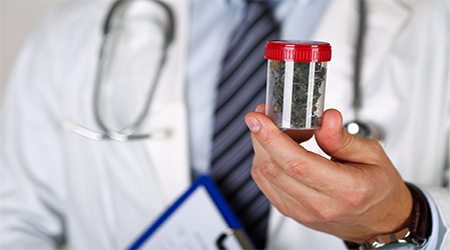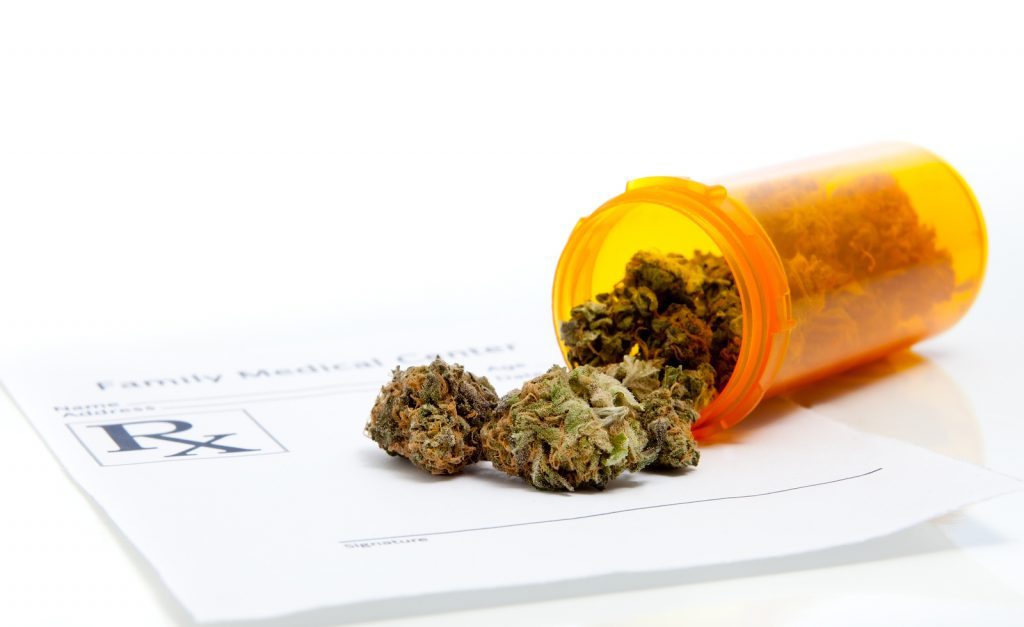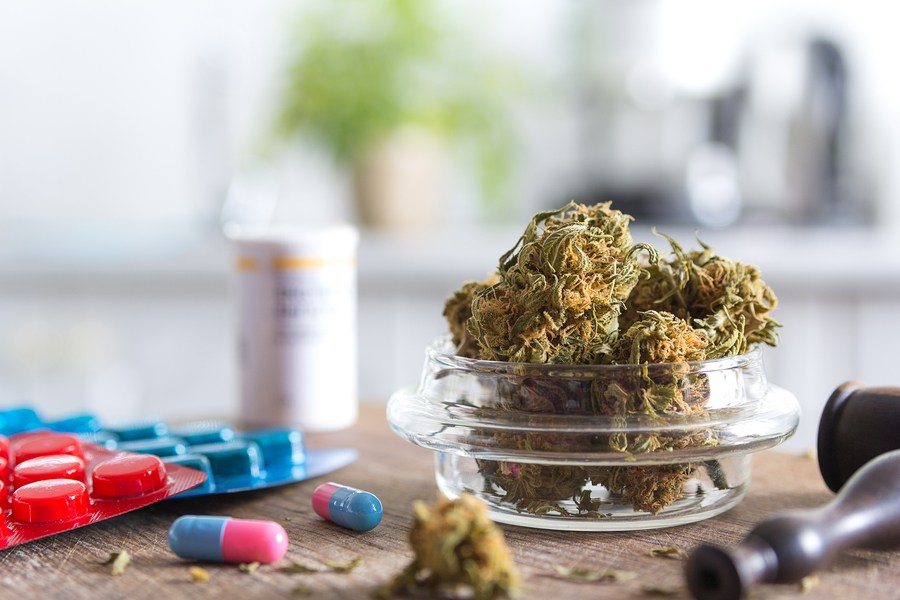Autism spectrum disorder (ASD) affects an estimated 3 million people in the United States. Males are more likely to be diagnosed than females, with about one in 42 boys and one in 189 girls affected. Like many medical conditions, ASD affects patients to differing degrees. Some are able to live independently with minimal treatment, while others are severely disabled and require intensive therapies. Autism cannot be cured, but research suggests that its negative effects may be alleviated by medical marijuana. If ASD is negatively impacting a loved one’s life, Cannabis therapy may be a useful treatment to supplement current care.
What Causes Autism? How Many People Are Affected?

Thanks to myths about links to vaccines, ASD has received heavy news coverage over the past few years. Though new information is beginning to emerge through research, scientists still aren’t certain what actually causes autism (though we do know it definitely isn’t vaccination). According to Autism Speaks, “Over the last five years, scientists have identified a number of rare gene changes, or mutations, associated with autism. A small number of these are sufficient to cause autism by themselves. Most cases of autism, however, appear to be caused by a combination of autism risk genes and environmental factors influencing early brain development.”
Like its causes, the effects of autism vary from person to person. However, speaking broadly, ASD has three basic types of effects:
- Effects on cognitive function (thinking and perception), which can significantly impact social function and relationships.
- Effects on motor skills (muscle movements).
- Effects on physical and mental health, which tend to involve gastrointestinal disorders such as Crohn’s disease, insomnia or other sleep disorders, and anxiety and panic disorders.
Autistic Child’s Family Blog Records Improvements After Using Medical Marijuana
Let me preface the following by emphasizing that my medical practice does not issue Cannabis recommendations for children. However, due to the scarcity of information surrounding ASD and Cannabis, I believe the following is relevant to discuss here.
In January 2013, the Huffington Post reported on Alex Echols, an 11-year-old boy residing in Oregon, whose parents “turned to medical marijuana to help manage their son’s self-destructive rages.”
According to Alex’s mother Karen, “Alex had every family of behavior medication known to the psychiatrist, and we tried private behavior therapy. We tried some swimming for a while, we had a special sensory room set up in the garage, and we did some stuff at home and at school with communication techniques to try and help him tell us what he needed before he got into a rage fit… We tried a lot of stuff before we considered the group home.”
Increasingly worried, the Echols family decided to talk to a doctor about medical marijuana for Alex. After obtaining a recommendation (which is also required to become a marijuana patient in Massachusetts or any other state), Alex “had some truly amazing results,” according to his father Jeremy. “He explored his world with his hands, something he was very rarely able to do. His hands were the enemy up to this point… But on those few truly magical days when we got the dosing just right, he played. He used his hands to explore. He looked at us and smiled.”
The Echols family maintained a blog for two and a half years after their story was covered. The entries cover a variety of topics related to Alex’s life — personal care homes, surgeries, the use of his photos — but some, including the penultimate entry, focus on medical Cannabis. On April 14, 2015, Jeremy Echols wrote the following:
“We got Alex’s [Oregon Medical Marijuana Program] card recently, and we now have a donor (TJ’s Organic Gardens), so we’re able to give Alex a blend of high-CBD and high-THC oils, mixed to whatever ratio we think will work best. We’re not sure how much he needs or what ratio, so it’s still a bit of a guessing game (TJ’s has been giving us pointers), but we’re back to being able to dose him again, which is obviously very important. And we can dose him TWICE a day since he’s so close to us. In practice, we’ll probably miss a dose here and there, which sucks, but so far we’ve hit a lot more two-dose days than not.”
(Jeremy’s reference to the “guessing game,” by the way, is exactly why I’ve argued that we need a federal Cannabis prescription system. Such a system would remove this sort of guesswork for patients; but since the DEA refused to reschedule marijuana in August 2016, that possibility is off the table for the time being.)
On February 5, 2013, Jeremy even posted a video “to show a more typical representation of how [C]annabis helps Alex.” (The video is accompanied by a blog post that goes into deeper detail.)
On January 22, 2013, shortly before the Huffington Post article was published, he wrote, “Every time I visit now, I try to do the exact same thing right off the bat: take him to the car, give the Dixie Botanicals CBD extract, give the high-THC tincture, go for a drive. We don’t know how much it’ll help, but we know that it usually helps a little, and sometimes it helps a whole bunch.”
Medical Research on Cannabis Therapy for Autism Spectrum Disorder (ASD)

However compelling, anecdotal evidence should be supported by hard research. Though lacking the emotional impact of the Echolses story — and, unfortunately, rather sparse — research does appear to support their experience. According to a 2010 case report on a 6-year-old autistic boy who used dronabinol (Marinol), which contains synthetic THC, “Hyperactivity decreased by 27 points, lethargy was reduced by 25 points and irritability by 12 points. Stereotypic behaviour decreased by 7 points and inappropriate speech improved by 6 points.” There are currently no studies charting the effects of Cannabis use on adults diagnosed with ASD, but the effects observed in child subjects may extend to older patients. Obviously, more research is needed.
That being said, studies about conditions other than autism can shed additional light on how adult ASD patients could benefit. For instance, studies have been published examining marijuana’s effects on insomnia, anxiety, and stomach pain, all of which are common in autistic individuals. For brevity’s sake, I’ll simply say here that research indicates Cannabis can alleviate stomach pain, relieve the symptoms of anxiety, and induce deeper, more refreshing sleep. However, I’d also encourage you to read the studies for yourself. You can find links to numerous peer-reviewed studies in my articles on how marijuana treats anxiety and insomnia, or using Cannabis for chronic pain.
While Cannabis may not “fight” or “counteract” ASD directly, it can have dramatic positive effects upon many of the conditions associated with ASD, which can make a huge difference in the patient’s quality of life. So how does one actually qualify?
Is Autism a Qualifying Condition for Medical Marijuana in Massachusetts?
Massachusetts does not explicitly recognize autism as a qualifying condition for medical marijuana. However, Massachusetts’ medical marijuana legislation does contain a provision allowing Cannabis for “other conditions as determined in writing by a qualifying patient’s physician.” If the physician of a person diagnosed with ASD determines that the benefits of using medical marijuana would outweigh the potential risks and harms — which is often the case, since the negative effects are generally limited to sore throat, coughing, dry mouth, and drowsiness — he or she can recommend Cannabis as a medical therapy.
If you have a family member aged 18 or older whose quality of life is being negatively impacted by ASD or other serious medical conditions, you may be a good candidate for medical marijuana. Call Inhale MD at (617) 477-8886 to start discussing the health benefits of Cannabis in a private consultation.

